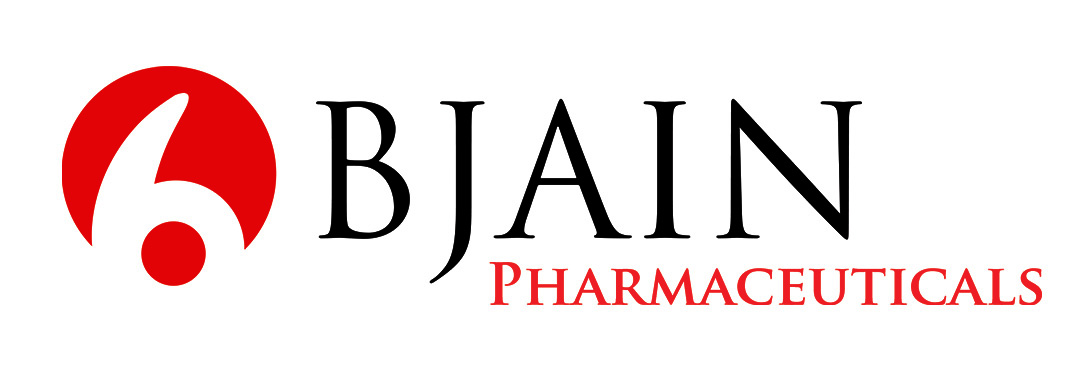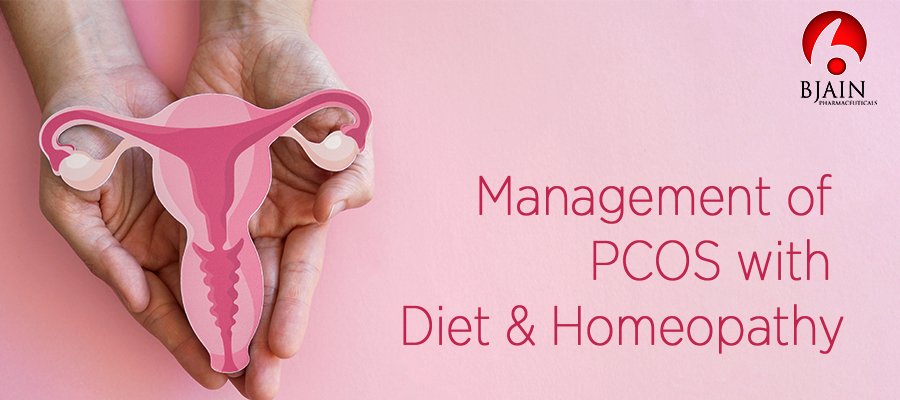Polycystic Ovarian Syndrome also known as Polycystic Ovarian Disease is one the most frequently diagnosed diseases of women of reproductive age. One in every ten women of childbearing are affected with Polycystic Ovarian Syndrome. Generally women find out in their 20s and 30s that they have PCOS. But, it can occur at any age after puberty. You might wonder what is causing this health condition in women. How can we prevent this from happening to us? Some of you might be currently struggling with this problem already and you are looking for a solution. Here I am going to give you a brief insight about Polycystic Ovarian Syndrome, its relation to diet, lifestyle, our mental health and some Homoeopathic remedies suggested for its management.
Let’s dive right into the details of Polycystic Ovarian Syndrome (PCOS).
Polycystic Ovarian Syndrome (PCOS) is a clinical condition of ovaries caused by the imbalance of reproductive hormones. There are numerous small cysts or sacs filled with fluid in ovary. Some women may experience cysts and others may not.
Who are at high risk of PCOS?
Women with obesity are at higher risk. If you have a family history of PCOS then your chances of getting Polycystic Ovarian Syndrome increase. Insulin resistance also plays an important part in increasing the predisposition to PCOS. A sedentary lifestyle increases the chances of developing symptoms of PCOS by a multifold.
Why do we get PCOS?
When our bodies do not make required amount of hormones to stimulate ovulation, this abnormality induces formation of cysts. These small cysts further produce a hormone known as Androgen. Women suffering from PCOS usually experience high level of testosterone and this may disturb their menstrual cycle. Normally, one egg gets chosen by the ovary for ovulation in each cycle which further goes towards maturity by targeting of hormones towards it, however, in PCOS, there are multiple follicles that start to develop in each cycle and frequently none of them reach maturity leading to the formation of cysts.
What are the clinical features of PCOS?
- Irregular menstrual cycle
- Acne
- Hirsutism
- Alopecia
- Pigmentation of Skin
- Obesity
- Skin tags
How do we diagnose PCOS?
It cannot be diagnosed with one single investigation. You have to undergo physical exam and variety of tests:
- General Physical Exam: Your doctor will thoroughly examine you for Acne, Body hair, BMI, Blood pressure, or any skin discoloration. They might look for any swelling of Thyroid.
- Blood Tests: Your doctor may look at your hormone profile i.e. Testosterone, Thyroid profile etc. They may also check your blood cholesterol level and screen you for Diabetes. A test for your ovarian reserve called AMH, is a strong indicator for PCOS, normally AMH levels during fertile period lie between 2-4, but they are frequently increased in cases of women with PCOS.
- Pelvic Examination: Your doctor can examine you for any sign of inflammation and enlargement.
- Pelvic Ultrasonography: It will be conducted to look for any cyst in Ovary and see the thickness of endometrium lining. A classic sign of PCOS is the “String of Pearls” appearance on ultrasonography due to the peripheral cysts in the ovaries.
What are the complication of PCOS?
- Infertility
- Gestational Diabetes
- Miscarriage and Pre-term birth
- Metabolic disorders: a group of conditions including high blood pressure, high blood sugar, and high cholesterol or triglyceride levels that markedly increase your risk of heart and blood vessel (cardiovascular) disease.
- Anxiety, Depression and eating disorders
- Cancer of endometrium
What is the relation of PCOS with Diet and Lifestyle?
Polycystic Ovarian Syndrome comes under the category of lifestyle and metabolic disorders. Its relation to diet has been established in some studies but there is no standard given diet for it. But, low glycemic index, low carbs, lean protein, keto and DASH diets have been seen useful in easing the symptoms of PCOS.
Weight loss is always recommended when it comes to managing PCOS. PCOS puts you in paradoxical circle which makes it difficult for you to lose weight and lead a healthy lifestyle. Lifestyle modification is the first line of treatment and it is known that even 5-10% weight loss has led to significant clinical benefits improving psychological outcomes, reproductive and metabolic features.
The metabolic disturbances caused by PCOS induces weight gain. This is reason why you should take an extra step in the direction of healthy lifestyle. You should directly avoid taking food which may instantly spike your blood sugar or stimulate inflammation.
How Homeopathy can help you in PCOS?
Homeopathic medicines have shown very effective results in managing the symptoms of Polycystic Ovarian Syndrome. It is a holistic approach towards complete well-being. Homeopathic remedies are a safe and effective way to treat your illness.
BJain Omeo Cystin Drops is a very effective Homeopathic remedy for PCOS. There are few other medicines which have direct action and it helps treat Polycystic Ovarian Syndrome (PCOS).
- Bjain Pulsatilla Liquid Dilution: If PCOS has caused your menstrual cycle to become extremely irregular, this medicine can help you immensely. Your periods could be extremely painful and come after extended pauses. The patient may have symptoms such as an insatiable thirst and a constant urge to be outside.
- Bjain Sepia Liquid Dilution: Among the different homeopathic treatments for PCOS, this one is most frequently prescribed because of its many advantages. It not only fixes short and irregular menstruation, but it also works well to lessen ovarian irritation brought on by cysts. When sepia is used, patients may exhibit signs of mental agitation and cold air sensitivity.
- Bjain Calcarea carbonica Liquid Dilution: Certain women may experience fairly frequent and extended menstrual cycles. It could additionally make you more likely to put on weight. One highly useful medicine that can effectively treat these symptoms is Calcarea carb. If you have an external craving for cooked eggs and intense perspiration (learn more about sweating problem), you will be administered Calcarea carb.
- Bjain Natrum muriaticum Liquid Dilution: Different women may have PCOS in different ways. Period irregularities and suppression are among the PCOS symptoms that are most frequently mentioned. For this condition, Natrum mur is a useful Homeopathic remedy. If a woman has tried and failed to conceive, she may also benefit from this.
- Bjain Oleum morrhuae Liquid Dilution: This Homeopathic remedy may be very helpful in treating facial hair growth that is excessive. When hair grows on the chin or upper lip, it produces positive effects. It’s possible that the hair is thick. This medication works wonders to screen for abnormal facial hair development.
Conclusion:
Polycystic Ovarian Syndrome is one of the most complex female disorders and it can significantly reduce the quality of life. It also produces certain complications such as infertility, Diabetes, other metabolic disorders etc. I can be very debilitating to live with this disease. Active management of PCOS through Diet, exercise, and Homeoopathic medicines plays a crucial role.

Dr Kiran Swami
Dr. Kiran Swami, BHMS, MD (Hom.), a Research Officer at BJain Pharmaceuticals Pvt. Ltd., holds degrees from Nehru Homeopathic Medical College, Delhi, and Dr. Sarvepalli Radhakrishnan Rajasthan Ayurved University, Jodhpur. With expertise in homeopathy and a passion for research, she drives innovation in holistic healthcare solutions.


